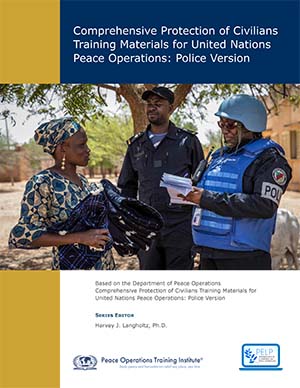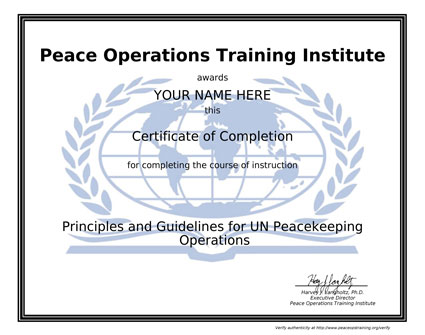Since the Security Council first established the protection of civilians (POC) as an explicit mandate in 1999, peacekeeping has evolved significantly, growing both in size and complexity. During this period, POC has continuously gained in prominence and today ranks as the priority mandate in a number of peacekeeping operations. While POC has sometimes become the yardstick against which mission success is measured, it is arguably also the most challenging mandate to implement. This comprehensive training package combines aspects of POC, Child Protection, and Conflict-Related Sexual Violence for police peacekeepers, describing the complex linkages between these tasks and how to prevent, deter, and respond to interrelated threats.
These course materials have been sourced directly from the United Nations Peacekeeping Resource Hub under a revocable licence issued by the Integrated Training Service.
Number of pages: 243 [English]
Publisher: Peace Operations Training Institute [06-01-2022]

